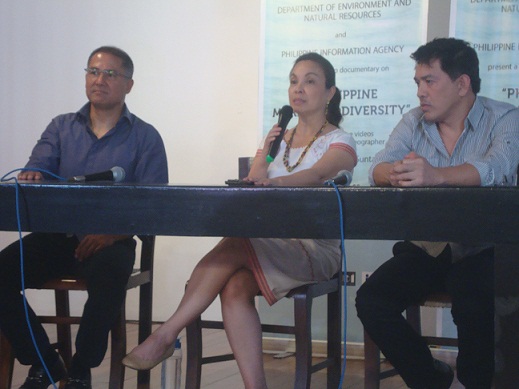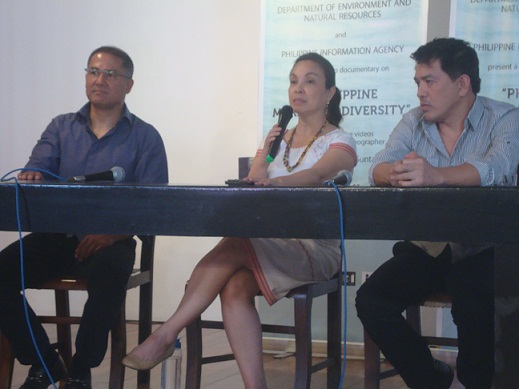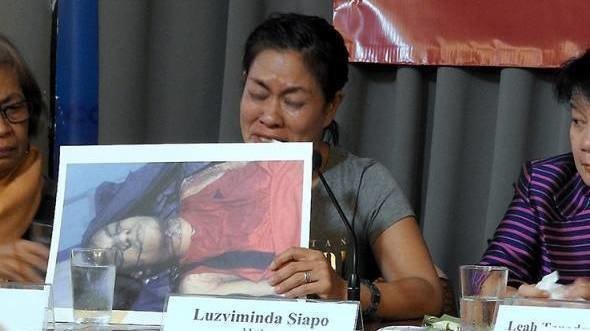By KIERSNERR GERWIN TACADENA
“GUTOM (hunger),” Sen. Loren Legarda said is what’s in store for the Filipino people if destruction of the country’s marine resources is not stopped.
Legarda, chair of the Senate committee on Environment and Natural Resources, presented the grim scenario at the launching of a video documentary on Philippine Marine Biodiversity at the National Museum on International Earth Day.
Directed by internationally acclaimed filmmaker Brillante Mendoza and shot by underwater videographer, Robert Suntay, the documentary is part of a campaign to prod Filipinos to protect marine resources. It was produced in partnership with Department of Environment and Natural Resources (DENR) and Philippine Information Agency.
Legarda said protection of marine resources could be one of the many solutions to hunger experienced by Filipinos.
“We are rich in fisheries and coastal resources, and yet why is it that 3.9 million Filipino families were hungry in the last quarter of 2013?” Legarda asked, adding that four out 10 coastal residents in the country live below the poverty line.
The documentary shows how human abuses like dynamite and cyanide fishing, improper waste disposal, pollution and urbanization degrade the marine ecosystem.
“Its (marine ecosystem) destruction affects the livelihood of coastal communities, our food supply, our tourism and our economy,” Legarda said.
The video shows that in the 1970s, fishermen in Apo Island in Negros Oriental practiced dynamite and cyanide fishing, which destroyed coral habitats and killed marine animals.
To avoid losing their very source of food and income, people of the island adopted a marine conservation program to prevent further damage to the marine ecosystem. It took 10 years for the island to recover from the damage resulting from the illicit ways of fishing.
According to the Food and Agriculture Organization, the Philippines’ global rank on aquaculture production has fallen from 4th place in 1985 to 12th place, with the country contributing only a little over 1 percent fish production compared to 5 percent in the past years.
The Philippines also used to be the largest seaweed producer in the world next to China but was dislodged by Indonesia in 2007, Legarda said.
“This documentary is our commitment to marine conservation which begins when Filipinos are made aware of the urgency of its protection,” Legarda said, adding that public education is important in protecting the environment.
She said they will be tapping teachers and fisherfolk in helping raise public awareness on the consequences of harming the marine biodiversity.
Suntay said, “We must bring much needed attention to the critical significance of protecting our marine environment and safeguarding it for the generation to come, that our underwater flora and fauna will not only survive but thrive.”
Legarda expressed concern that certain environment-related laws like Solid Waste Management Act, Clean Air Act and Clear Water Act still need stricter compliance by local government units (LGUs).
She said she has talked with Tony La Viña of Ateneo de Manila University to craft the Environmental Justice Act that “will institute more stringent punishment for penal violations on these laws.”
Copies of the documentary will be distributed through DENR to LGUs, and nongovernment organizations, television networks and private institutions.
(The author is a University of the Philippines student writing for VERA Files as part of his internship.)




